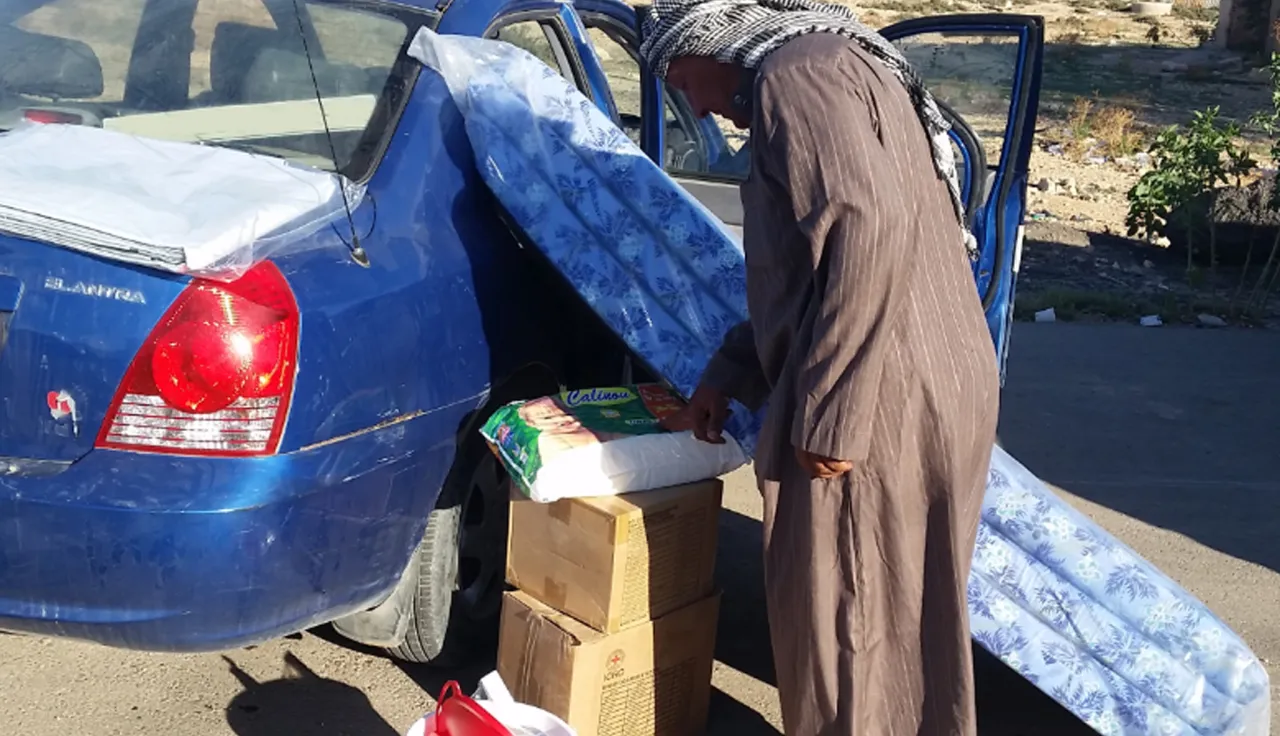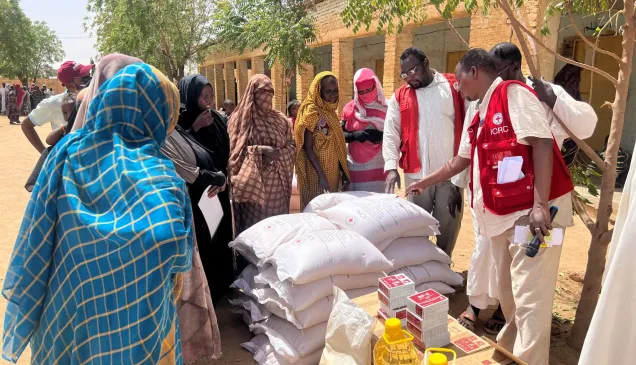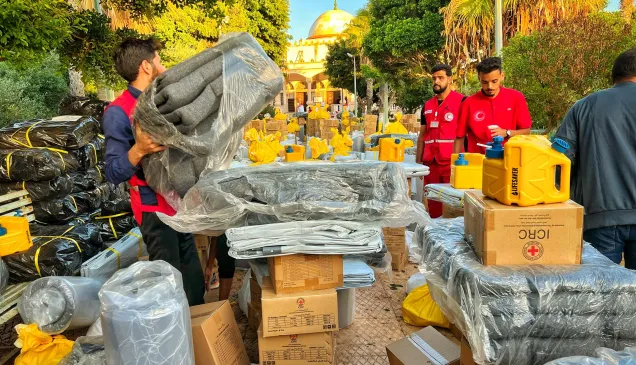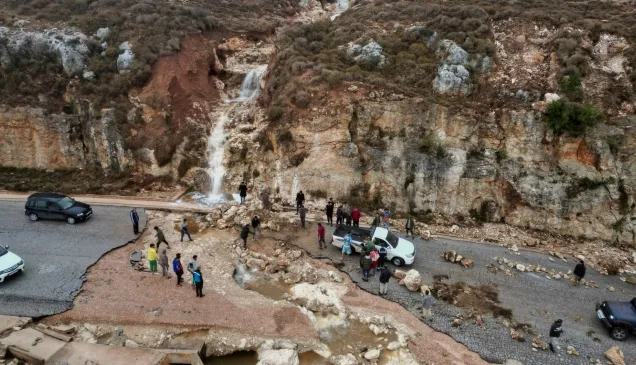Libya: Struggle to survive as services collapse

With no end in sight to the fighting in Libya, people are losing hope of ever returning to normal life. Many regions face regular power cuts, water cuts and fuel shortages, and it is becoming increasingly difficult to obtain health care. Crime and kidnapping are on the rise and people live in constant fear of the shelling and other attacks that continue to hit residential areas and health facilities, leaving many dead or wounded.
Targeting civilians violates principles of humanity
"People who aren't taking part in fighting must be protected at all times," emphasises Katja Lorenz, who heads the ICRC's operations in Libya. "Targeting civilians is not only a violation of international humanitarian law, it negates the most basic principles of humanity. Fighters must not do anything to put the lives or wellbeing of civilians at risk and they must not damage civilian property."
Tens of thousands of displaced families still have no prospect of returning home in the foreseeable future. The collapse of the economy and constant increases in rents and the prices of essential commodities are further stretching their already limited resources.
Attacks close hospitals
Health services have been hard hit by the fighting. Many hospitals and health centres lack staff, drugs and other supplies, leaving them unable to cope with the increasing needs. Those who can still afford it seek treatment abroad, but all too many patients are left without care. Several hospitals have been attacked and medical staff have suffered intimidation, resulting in partial or complete closure of health facilities and the suspension of health services.
"A safe working environment is essential in order for health facilities and personnel to treat the sick and the wounded. By preventing health personnel from doing their job, fighters are putting the entire population at risk. Staff must not be intimidated and health facilities and personnel must not be targeted," says ICRC protection coordinator Jérôme Thuet.
The ICRC and Libyan Red Crescent support the Libyan population
With more than 100 Libyan staff in the country and operational offices in Tripoli, Benghazi, Misrata and Sabha, the ICRC is the largest international humanitarian organization active on the ground in Libya. Together with the Libyan Red Crescent Society (LRCS), we are supporting the Libyan population and trying to meet the increasing needs arising from the fighting and general instability.
Between January and September 2015, the ICRC:
- delivered food to 32,000 displaced persons and delivered other supplies (hygiene requisites, kitchen utensils, mattresses, blankets, etc.) to 43,000, working with the Libyan Red Crescent;
- provided medical supplies and 20 kits for the treatment of weapon-wounded patients to 16 hospitals and 5 primary health centres all over Libya – enough to treat some 12,000 patients;
- organized two emergency room trauma care courses for 29 Libyan doctors, surgeons and anaesthetists from 20 Libyan hospitals;
- ran a first-aid course for 15 LRCS trainers from 11 branches;

Tunis, Tunisia, 18 October 2015. Libyan Red Crescent first-aid trainers undergo training during a 10-day course. They will now conduct their own training courses for Libyan Red Crescent first-aiders all over Libya. CC BY-NC-ND / ICRC / Rabih Al-Fakih
- helped families separated by the conflicts to maintain or re-establish contact, collecting and distributing 83 Red Cross messages, including 14 "safe and well" messages from unaccompanied minors held at the Karareem retention centre in Misrata;
- organized 7 video calls and worked with the LRCS to facilitate 10 phone calls between families in Libya and their relatives detained in Guantánamo;
- contributed to the voluntary repatriation of over 550 Senegalese and 40 Gambian migrants to their countries of origin, in cooperation with the LRCS and the International Organization for Migration;
- provided clothes, mattresses, blankets and hygiene kits to some 900 migrants held by the Department of Combating Illegal Migration;

Sabha Retention Centre, Sabha, Libya, 7 July 2015. ICRC staff deliver personal hygiene items, blankets and mattresses to 349 African migrants. CC BY-NC-ND / ICRC
- trained 40 LRCS volunteers in the appropriate handling of human remains and provided 12 LRCS branches with 1,345 body bags, 46 dead body management kits (enough to handle 1,150 bodies) and personal protection kits;

Tunis, Tunisia, 6 August 2015. Libyan Red Crescent volunteers learn how to deal with dead bodies and how to protect themselves during this type of work. CC BY-NC-ND / ICRC / Mohamed Chehab/ICRC
- supported the Libyan Red Crescent Society, in particular by providing 3 ambulances, 4 trucks and 4 other vehicles and covering some of its running costs and expenses;
- trained 60 LRCS volunteers in how to stay safe while carrying out their duties
- facilitated the participation of LRCS staff and volunteers in four international and regional workshops.



